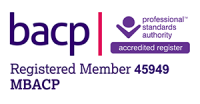
Anger can be expressed or contained. It can vary in intensity from slight irritation to intense rage and hostility. Anger can be constructive when expressed in a healthy, appropriate manner or very destructive when it gets out of control.
Anger can be a useful emotion at times. However, many people struggle with managing angry feelings and how anger gets expressed plays a role in overall emotional well-being. For some people, anger is always waiting just below the surface and small insignificant triggers can evoke disproportionate anger and rage.
Men and women often experience anger differently
Men are more likely than women to experience problems with uncontrolled, over-expressed anger, aggression and rage while women are more likely to have problems with unexpressed or contained anger.
Withholding or not expressing anger can be as destructive as uncontrolled outbursts of this volatile, unpredictable emotion. We have known for some time there is a link between long-term unexpressed anger and depression.
Culturally, it is generally considered more acceptable for men to show anger than it is for women.


Why is anger so problematic?
Anger can affect almost every part of someone’s life.
Problems with anger can negatively impact personal relationships and can be detrimental in the workplace and in the home. Anger can break up families, relationships and friendships.
Many people with anger problems find it frustrating that they cannot control their anger even when anger is counterproductive to the lives they wish to lead. They might be known by others as an ‘angry person.’ Recurring displays of anger should not be part of a person’s identity.
Does anger therapy help?
Anger therapy attempts to get to the bottom of why a person carries anger and looks at the triggers that lead to angry outbursts.
Through understanding anger and its origins many people find that anger diminishes, they become more able to manage angry feelings and they become less prone to angry or aggressive behaviour.
For some people, anger therapy is about looking at unspoken, unexpressed or contained anger and the effects that not expressing angry feelings may be having on overall mental health and well-being.
To speak with someone about anger problems, please get in touch.

Counselling for anger explores the origins and triggers behind recurring anger problems and helps resolve underlying anger issues.
Both over-expressed and under-expressed anger can lead to problems with emotional and psychological well-being.
Making a first appointment
Appointments are available Monday to Friday from
8.00 am until 8.00 pm and on Saturday afternoons.
Appointments last 50 minutes.
One Therapy Brighton
There are many styles of therapy and understanding the different types can be confusing. We are trained in a number of different counselling approaches.

 Testimonials
Testimonials
 Contact
Contact
Please use our online enquiry form below and we will respond shortly
There are a number of ways to reach us
One Therapy Brighton
2 Bartholomews
Third Floor
Brighton
BN1 1HG
Telephone
Online
To book your first appointment with us, complete
our online booking form and we will contact you shortly.
If you prefer to speak with us, you can call us between 9:00am – 12:30pm Monday to Friday.
Appointments available
Mondays to Fridays 8.00 am — 8.00 pm
Saturdays 10.00 am — 5.00 pm




